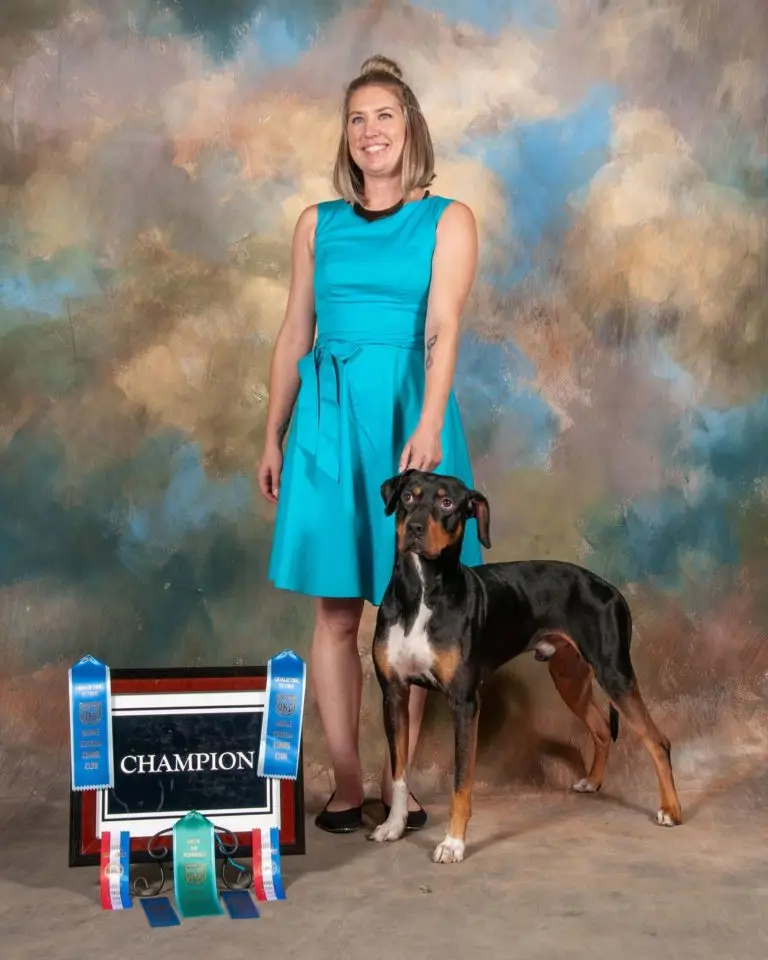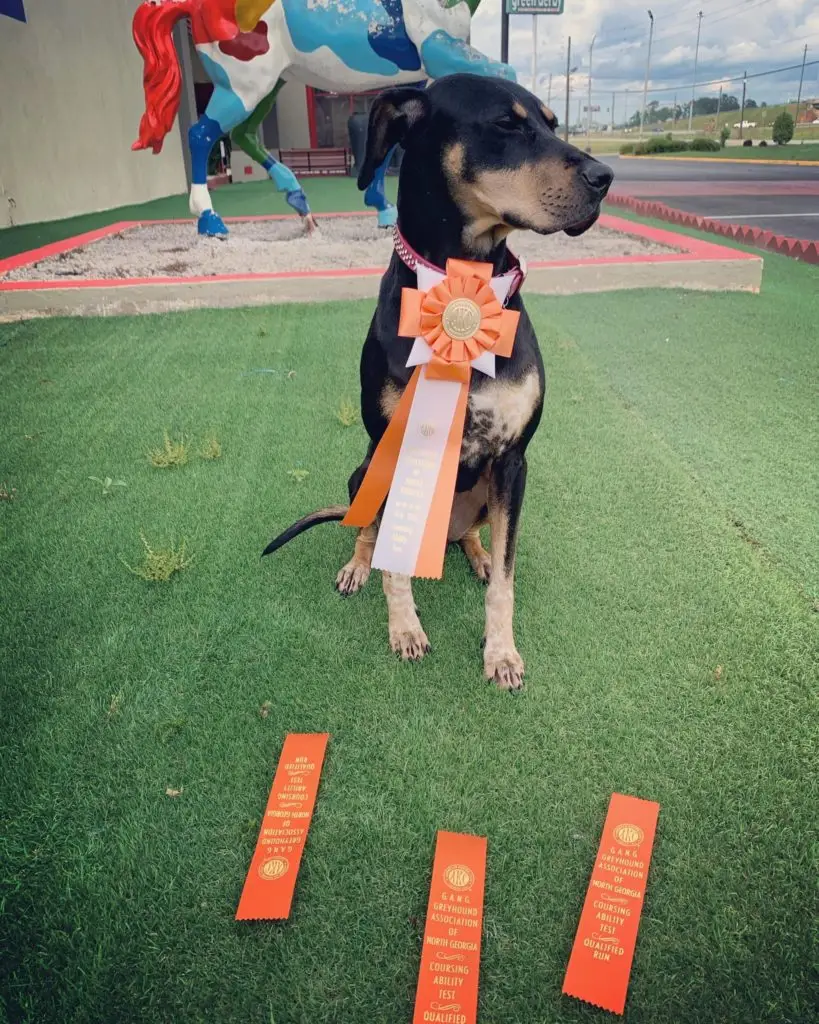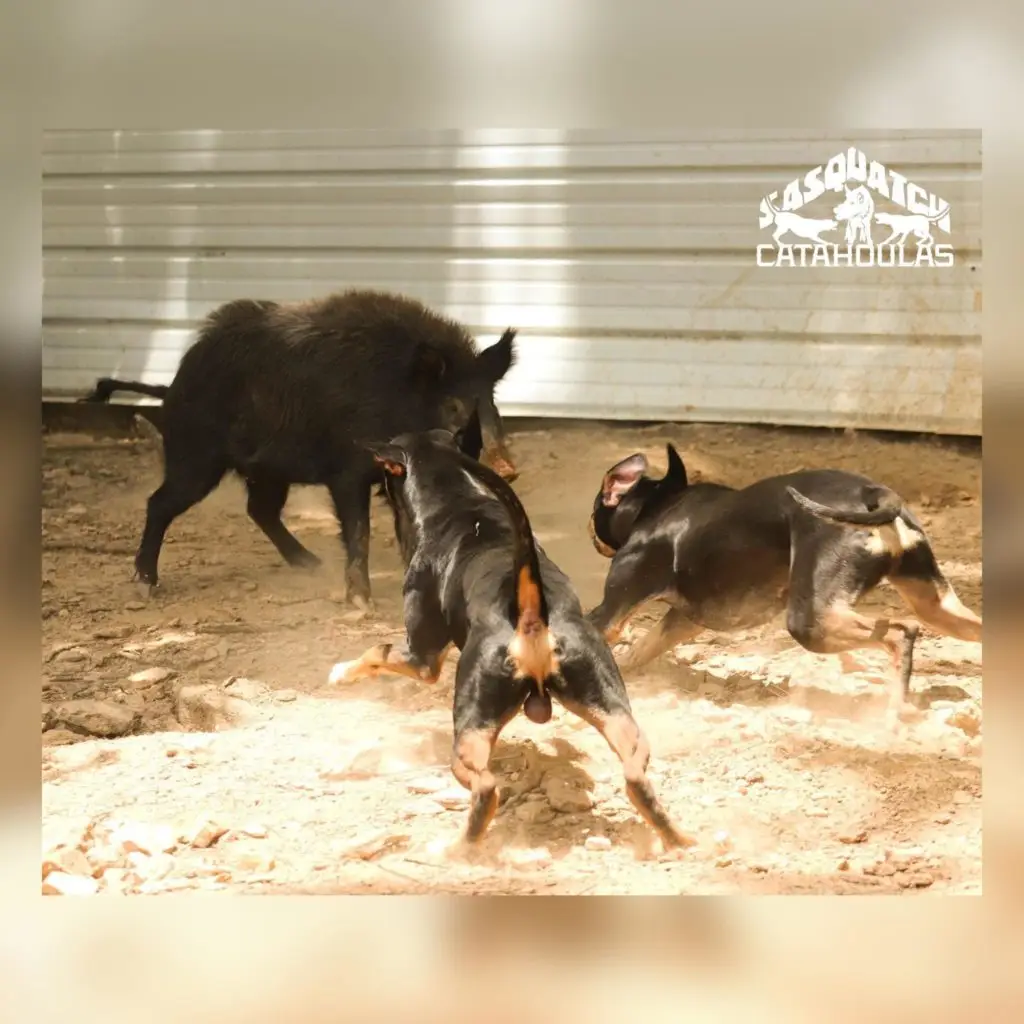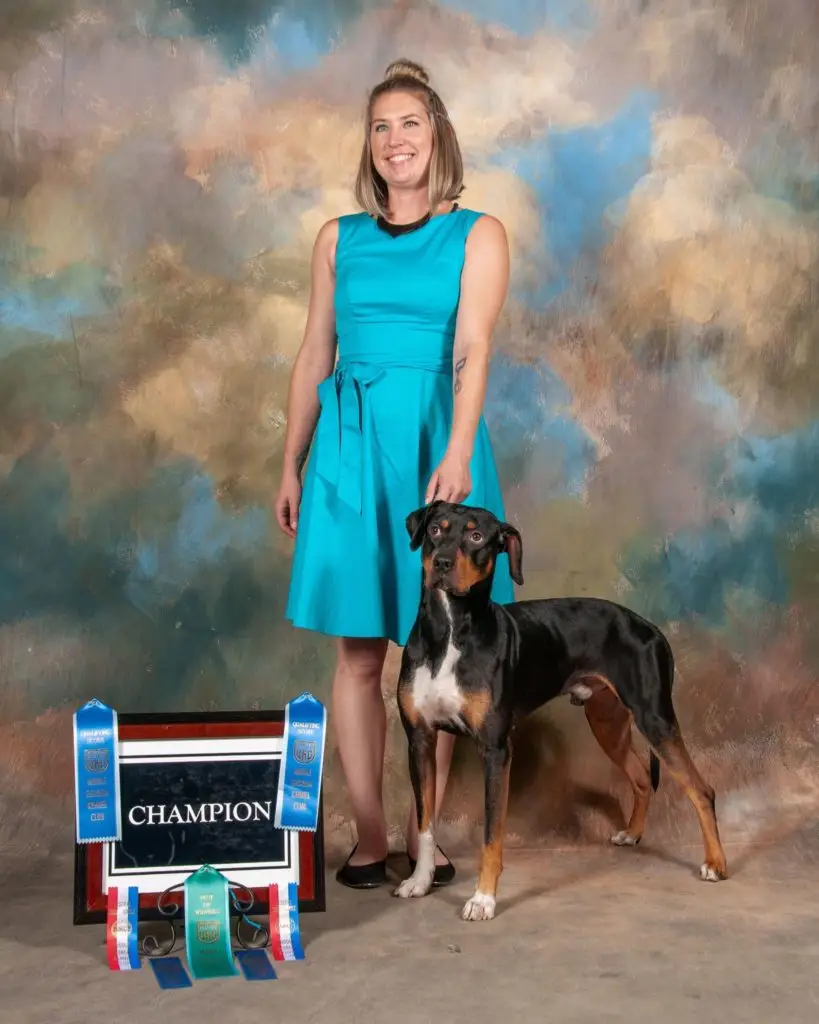Our guest writer for this post is Noelle Presnell, from Performance Canine, serving the North and West metro-Atlanta areas. Noelle has had both rescue dogs and purebred dogs in her pack over the last ten years and argues that there is a place for both! It really depends on your lifestyle and needs, but whatever you choose, make the choice with knowledge and research on your side!
“Adopt, don’t shop!” screams the rescuer to the purchasers of purebred puppies. There are hashtags on instagram, Facebook groups, entire community movements. My career began with working with shelter dogs. I would leave on Friday to return Tuesday to see some of my project dogs missing from their run. I only asked ONCE, if one of my dogs had gotten adopted over the weekend. He was NOT adopted, but euthanized. Devastation was followed by anger from the unwanted update. The officer I asked said it was in my best interest not to ask in the future, or it will get too difficult to continue working in the shelter. This began my extensive volunteer work in rescue.
I began fostering dogs from the shelters that were pulled by a rescue. Fostering is the temporary home between the shelter and the dog’s forever home. This is a very important and rewarding job. Fosters teach the shelter pup how to live in a home environment, introduce them to dogs, cats, other humans, vet visits, car rides, parks and much more. This also allows the foster to learn what the kind of home life that might be the best fit for the foster dog. Rescuers see the worst of what humans can do to dogs, and this is where our heart bleeds to find all of these lost souls a second chance at great life.
Adopting from the shelter or rescue helps free up a space for another pup’s chance to get off the “Kill List.” Watching your newly adopted dog come out of their shell is truly heartwarming and gives you a sense of pride that you had something to do with their transformation. There are definitely the dogs that show what we can only interpret as gratitude for taking them into your home. Adopting an adult dog lets you skip the hard work of raising a puppy, which is not for the faint of heart.
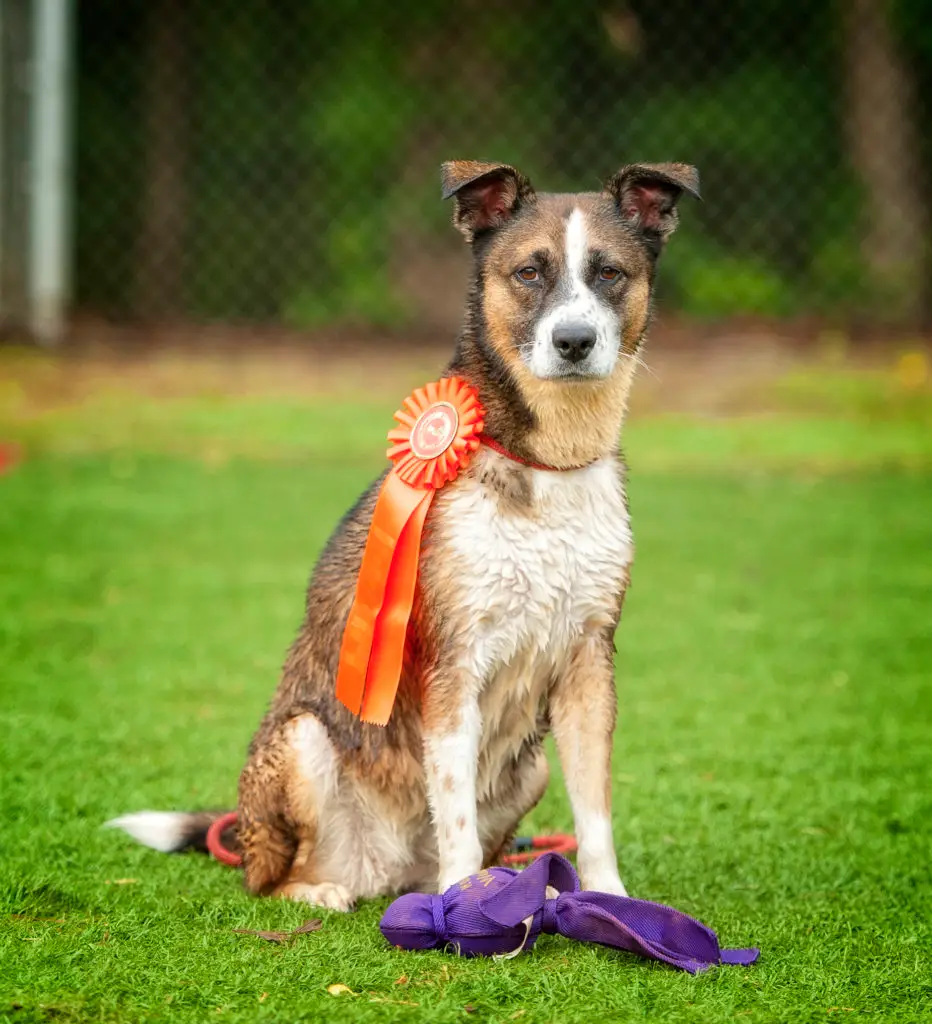
My very first dog I got as an adult was a year-old beagle collie mix, named Blitz. I adopted her from the Cherokee County Animal Shelter. She was PERFECT; potty trained, great with all dogs and cats, sensitive, easy to train, toy drive, water dog, she loved all humans, and she eventually became my first sports dog. Then came my other rescue dogs: Boogs, Ranga, and Finster. All joined my pack at different times. There are hundreds of attributes to list about my other rescues that make them special similarly to Blitz. They all have a piece of my heart and we share our own unique journey.
The next part of my journey brought me to professional dog sports training facility. This changed the trajectory of my career and gave me a new passion. Coming from rescue, I had never seen so many purebreds (and testicles!) in one place until I started competing in sports with my dogs. I had never trained so many purebreds, either. As a small girl, I would learn all about different breeds, their purpose and origin. Working in this environment reignited my interested and enthusiasm into the purebred dog.
My next sports dog prospect and the loss of two of my dogs to cancer sent me spiraling down the vast information rabbit hole the internet has to offer. I joined purebred groups, breed specific groups, sports groups, canine structure groups, health and genetic testing groups; the list goes on forever. A purebred dog has been bred for structure, temperament, the ability to work, and other sets of characteristics that make acquiring a dog from this breed to have predictable traits that will fit your lifestyle.
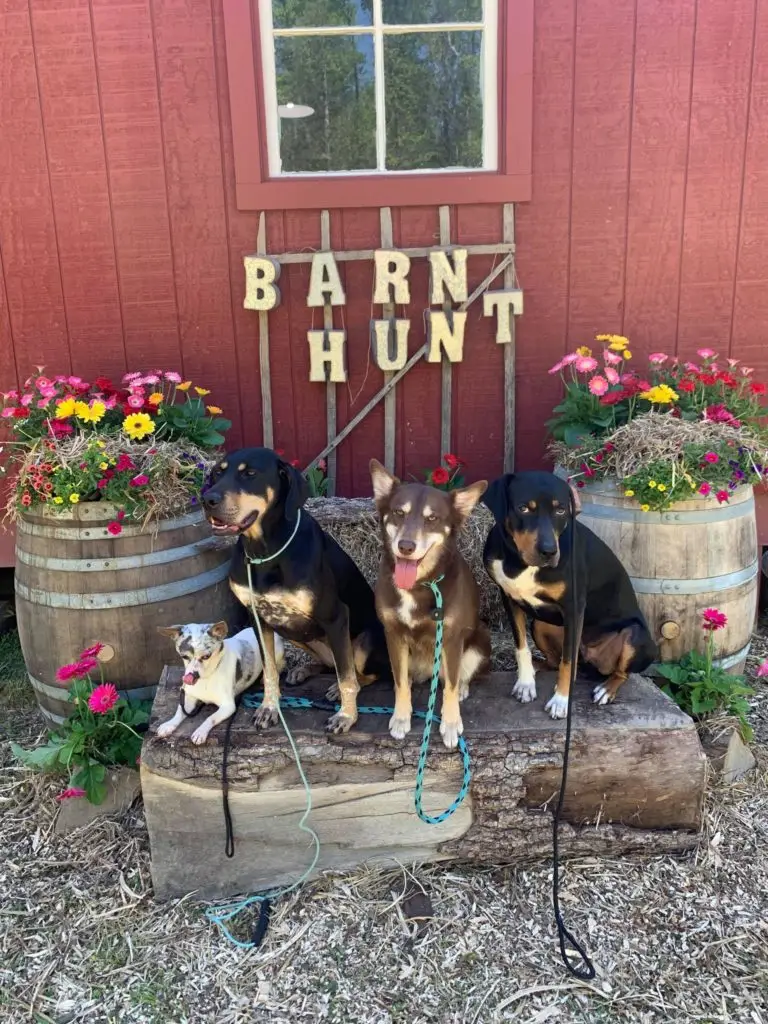
Noelle’s pack of 2 rescues and 2 purebreds. 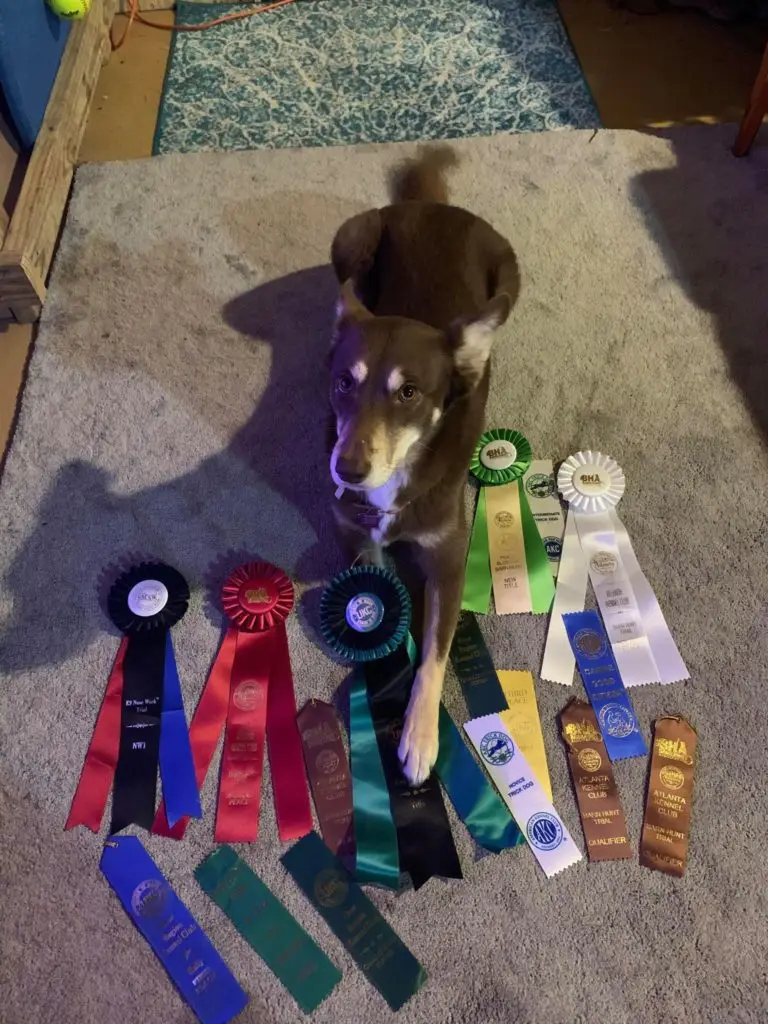
Ranga the Kelpie mix and all of her medals! 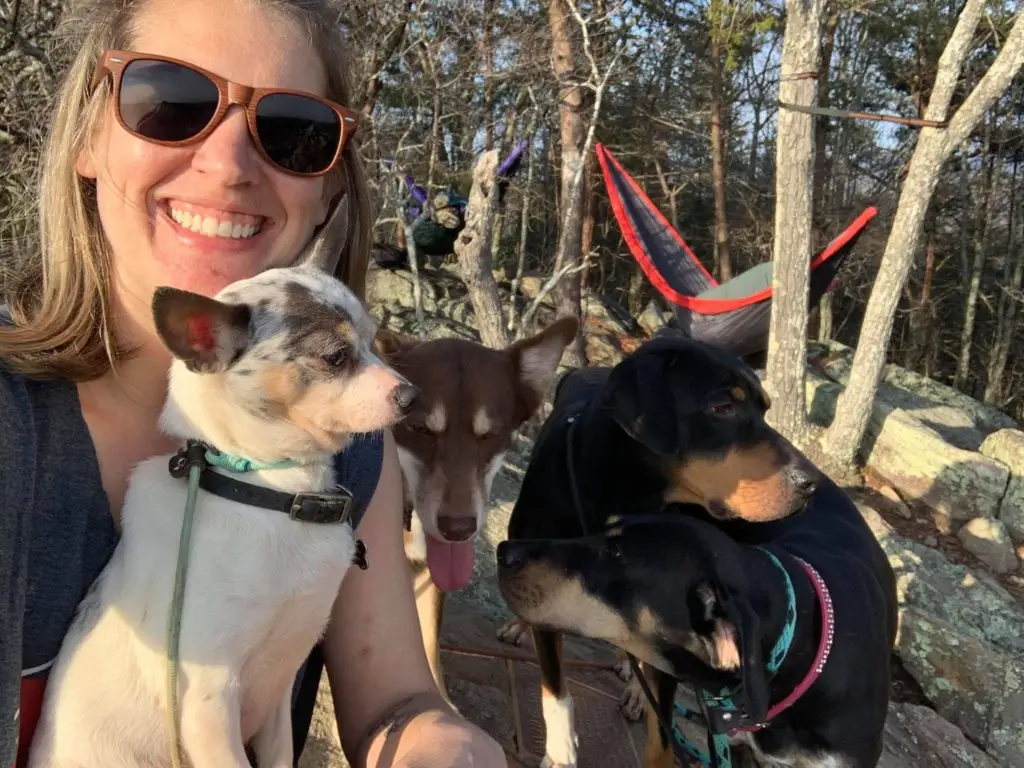
The whole pack on a hike!
There are many lifestyles that benefit from or even require a predictable dog. Personally, getting a dog for sports and investing years of training into a dog, it is important that find a breed that will meet my needs. People with disabilities that need service dogs need to have a dog with a very predictable temperament. Families with small children may opt for a dog that has temperament the remains suitable to children a the dog matures out of the cute puppy stage. Some people may simply like the aesthetics of a breed, need a certain size, coat type, energy level, etc. Many people prefer predictability when bringing an animal into their home for the next 8-15 years.
Two fundamental sayings that I have learned are critical in understanding what factors into why dogs end up in the shelter. “Purebred doesn’t mean Well bred” and “Backyard Breeder.” A backyard breeder will be selling purebred dogs, but they are NOT well bred. The dog training worlds also refers to these people as “greeders” because they breed mostly for the money and not for the betterment of the breed. They are not doing genetic health testing for common issues in the breed, such as hips, elbows, knees, eyes, heart. Dogs in their programs are not proven with titles or other proof of working ability, such as hunting, herding, or therapy work. There are now even “designer breeds,” where breeders are mixing two different breeds with completely different purposes and temperaments while promising puppy-buyers they will have typical characteristics; this is not genetically is not possible. When breeds are intentionally mixed in this way, the health and temperament for the breed is not being upheld when producing offspring. “Designer breeds” as well as poorly-bred purebreds can result in physically unhealthy and/or nervous, aggressive, or neurotic dogs, and unfortunately, these dogs often end up in the shelters.
Responsible breeders will not have their dogs end up in shelters. In addition to health and temperament testing, typical puppy contracts require that the dogs come back to them should an issue arise. They will either keep the puppy or find it another suitable home. Contracts also require spay and neuter clauses to avoid their dogs being used in backyard breeders’ programs. Responsible breeders who know their breed and don’t think your lifestyle will be a good fit, will be honest about this upfront and will also try to talk you out of their breed to ensure that the potential puppy buyers understand why owning that particular breed is difficult. Once they decide that you are trustworthy in owning part of their line***, they will be available to answer questions and will often offer support for the dog’s lifetime. Some even have puppy owners in groups, so they can have more support specific to the breed and the line. Responsible breeders want puppy buyers to keep them in their home indefinitely.
***Line is defined as the bitches, dogs, and offspring developed in a breeder’s kennel. They will typically have some relation further back into the pedigree, as breeders will be breeding different combinations of the bitches and dogs within their kennel.
Whether you choose to rescue or purchase a purebred, you are making a commitment to a dog for the entirety of their life. An adult rescue dog will have adopters avoiding the puppy stage and adult dog’s temperaments should not change, therefore, being more predictable for choosing a good fit for your home. Puppies from rescues are the product irresponsible owner’s or strays that can be trained and socialized with some predictability. Purebreds can also be rescued through breed specific rescues. A well-bred purebred can make a wonderful addition to your home when looking for specific attributes.
In short, there is a place in the dog world for both rescue dogs and well-bred purebreds! The important thing is that you do your research, adequately prepare, and seek out training for a new dog in your home. These steps not only help rescues, but also help purebred dogs stay out of shelters! Instead of “adopt, don’t shop,” let’s try “Shop responsible OR adopt!”

